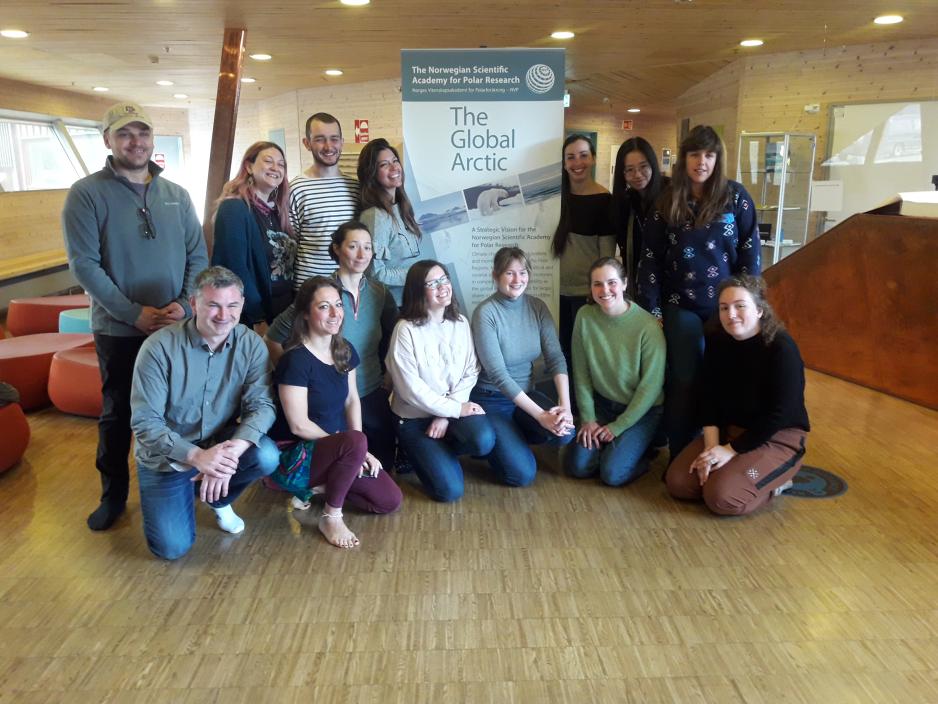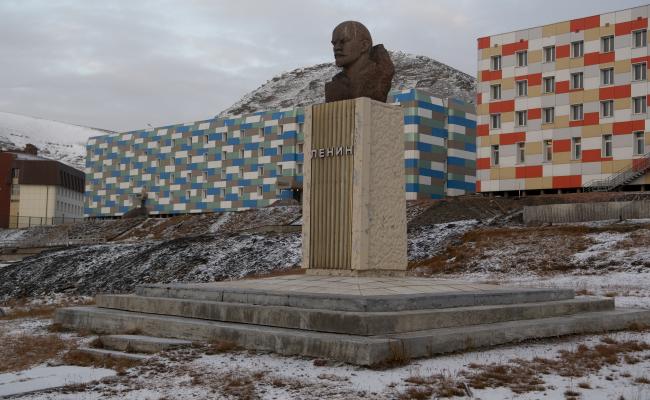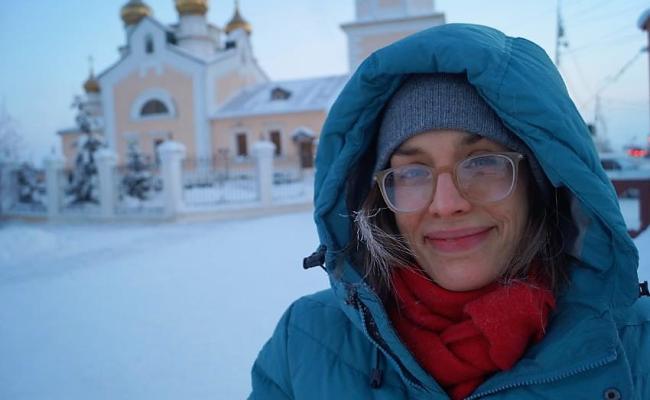Op-ed: International Students Come to Svalbard for Interdisciplinary Training About the Global Arctic

In June 2022, 19 Phd and postdoc students from Turkey, USA, Canada, England, Greece, Poland, Finland, Austria, France, Brazil, Lithuania, China, Sweden and Norway gathered in Longyearbyen for an intense week of lectures and excursions. (Photo: The Norwegian Scientific Academy for Polar Research)
The opinions expressed here belongs to the author and do not represent the views of High North News.
The Arctic is attracting increasing attention from most corners of the world. There has probably never been a time in history where the need for knowledge about complex challenges in the High North has been greater.
The future opportunities, challenges and problems of the Arctic will be in the hands of today’s young scholars and decision makers.
Climate change transforms the environmental conditions in previously unseen ways opening up new opportunities for logistics, resource exploitation and commercial development, but also exerting pressures on indigenous and local populations and vulnerable ecosystems.
Geopolitical and strategic issues are brought to the forefront of the international political agenda as the Arctic countries increase their efforts to secure domestic interests. Securitization needs stemming from far-way conflicts also increasingly spill over into the Arctic region, leading to expanding militarization and tensions contributing to a more uncertain future in the North.
It is imperative that education and training responds to a future with new questions and rapid change in the Arctic. The Norwegian Scientific Academy for Polar Research contributes to education of new arctic scientists through the annual summer schools in Svalbard in cooperation with UNIS (The University Centre in Svalbard. Red note) in Longyearbyen.
The summer schools apply the concept of “Three Poles”
After an impasse due to covid-19, the summer school program commenced again in 2022. This was the first round in a trilogy termed the ‘Global Arctic’.
As the global significance of the Arctic becomes more evident, the time is ripe for linking the socioecological systems of the Polar Regions with challenges in other regions. The summer schools apply the concept of “Three Poles” as a framework that links the Arctic, the Antarctic and the Himalayan regions as an umbrella framework.
Many of the challenges encountered in the Arctic are mirrored in the Second Pole – the Antarctic, and particularly within the region of the Third Pole, the Himalayan Region.
In June 2022, 19 Phd and postdoc students from Turkey, USA, Canada, England, Greece, Poland, Finland, Austria, France, Brazil, Lithuania, China, Sweden and Norway gathered in Longyearbyen for an intense week of lectures and excursions.
Lecturers in the fields of geopolitics, security, climate change, anthropology, biology, geography, history, planning and management provided rich and challenging insights on a range of arctic issues and global connections.
The 2022 summer school was explicitly interdisciplinary. All the students were subject experts in various fields and disciplines. A major objective of the summer schools is to bring young scholars together across the disciplinary boundaries and inspire thinking and problem solving around complex issues.
For most people, this can be a difficult and stressful exercise, at least in the beginning – which is exactly why the summer schools are designed and organized this way.
Also read
Real world Artic issues are complex and difficult, and we want to prepare future scientists and decision makers for this reality. The work started with practical safety training including polar bear protection and jumping into the ocean with survival suites and swimming to shore to getting to know each other and inspire team effort.
The following days were filled with lectures and group work, and the week was rounded off with a boat trip around the Isfjord area and visit to Pyramiden. The final task for the students is for the entire group to co-author a scientific article on a chosen interdisciplinary topic linked to the concept of the ‘Global Arctic’.
As expected, shaking together a highly diverse group of skilled and motived students from around the world brings a lot to the table. Real life Arctic is full og complexity, opportunity, and insecurity.
A delightful group of young scholars all returned to their home bases with new experiences, acquaintances, and thoughts about the future.
This is central to the mission of the Polar Academy: to help the future scientists and decision makers of the Arctic develop their knowledge and mindset around our rapidly changing future
New students will come to the 2023 version of the summer school which will focus particularly on the linkages between the Arctic and the ‘Third Pole’ – the Himalayas. The ‘Global Arctic’ trilogy will be rounded off in 2024 with broadening the perspective to include the Antarctic.
Judging by the motivation of the 2022 students, their skills, and abilities to work together as a team – the Polar regions of tomorrow are in good hands!




